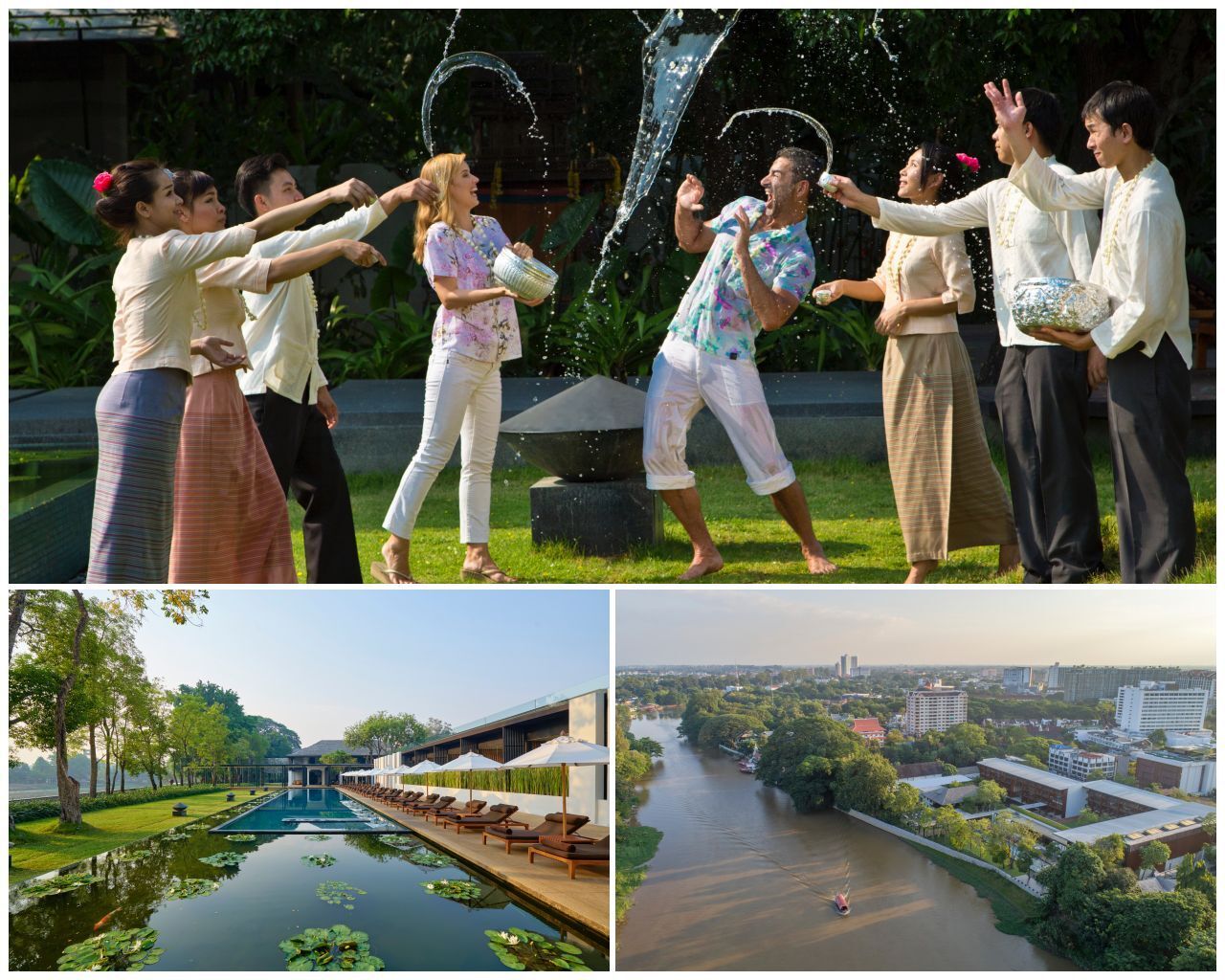The travel industry stands at the brink of a revolutionary transformation, powered by the rapid advancement and integration of artificial intelligence (AI) technologies.
As the world becomes increasingly digital, the expectations of travelers evolve, demanding more personalized, efficient, and seamless travel experiences.
The intersection of AI and travel has sparked a new era of innovation, significantly altering how we explore, book, and experience our journeys.
A focal point of this transformative wave is the insights and developments shared at the International Travel Trade Show (ITB) Berlin, where industry leaders gather to discuss the future of travel.
Unveiling the Future at ITB Berlin
At ITB Berlin, a premier event for the global travel industry, thought leaders and innovators converge to share their visions for the future of tourism. Here, the spotlight shines on artificial intelligence and its role in shaping the next generation of travel services and experiences.
Discussions and presentations delve into how AI is breaking down traditional barriers, creating new opportunities for personalized travel, and setting the stage for a future where technology and human desires align more closely than ever before.
The narratives emerging from ITB Berlin underscore the industry’s readiness to embrace AI, not just as a tool for incremental improvements, but as a foundational element for reimagining what travel can be in the decades to come.
Escaping the Tyranny of Search Bars
Traditional search methods in travel planning often feel like navigating through a labyrinth, where endless options and filters lead to confusion rather than clarity. The conventional search bar, once hailed as the gateway to the world’s information, has become a symbol of the overwhelming and sometimes tyrannical choice overload faced by travelers. In this landscape, finding the perfect holiday experience can be as daunting as the search for a needle in a haystack. This challenge underscores a pressing need for a more refined, intelligent approach to travel planning, one that understands and anticipates the needs and preferences of the user.
Enter the innovations brought about by artificial intelligence in the travel industry, which promise an escape from the tyranny of traditional search bars. AI technologies are now enabling more intuitive search and booking experiences, transforming the way travelers explore their options. By leveraging natural language processing and machine learning, AI-powered platforms can interpret the intent and preferences behind a traveler’s query, offering tailored suggestions that go beyond the capabilities of standard search algorithms. This shift not only streamlines the search process but also makes it a more interactive and engaging experience.
A prime example of AI’s transformative role in travel planning is evident in the approach taken by HomeToGo, a provider of holiday homes. The company utilizes AI to enhance user experiences by personalizing holiday home searches. Rather than sifting through an overwhelming array of options, users are presented with a curated list of properties that match their specific needs and desires. This is made possible by AI algorithms that analyze a user’s search terms and context, effectively narrowing down the search to the most relevant results. HomeToGo’s use of AI in this manner not only simplifies the decision-making process for travelers but also elevates the overall quality of their search and booking experience.
Dr. Patrick Andrae, CEO of the provider of holiday homes HomeToGo, said that the contribution last year by artificial intelligence to the sector’s sales was already 32%. His company attracts users with the Beta version of an app that integrates AI in the search for holiday homes. Those who use it receive a compilation of searches and offers from the surrounding geographical area as well as from the context of his search terms’ subject matter. AI assists in defining the extent of their intentions and requirements.
“AI acts as a companion who, where doubts exist, offers alternatives,” told Andrae.
Personalization at the Heart of Travel
In his keynote speech at the ITB Berlin Convention, Schubert Lou, COO of Trip.com, emphasized the shift in Asian travelers’ preferences from shopping to seeking unique experiences. He highlighted the importance for the tourism sector to adapt to these changing trends and the digital habits of travelers. Lou also discussed how AI-assisted technology could personalize travel experiences for tourists from China, catering to their specific preferences and requirements.
Post-pandemic, the travel behavior of Asian tourists has seen a significant resurgence, particularly in 2024, the “Year of the Dragon”. Lou presented data showing a 30% increase in travel from China to Southeast Asia compared to 2019, with a notable 130% rise in reservations for tours and organized activities. This growth has been facilitated by eased visa requirements, including those for Europe.
Lou’s analysis further revealed a change in the priorities of Asian visitors, with a growing preference for experiences, such as day trips, concerts, and festivals, over shopping. This shift indicates a desire for more meaningful and immersive travel experiences, focusing on cultural and recreational activities.
Finally, Lou underscored the critical role of digitalization in catering to the needs of Asian travelers, including the use of apps for payments, translations, and finding restaurants. To attract Asian tourists, destinations must offer a seamless digital experience, from inspiration to booking. Trip.com leverages AI technology to provide a personalized travel experience, gathering information from various sources, including the internet and traditional travel agencies, to continuously improve its services.
The Economic Impact of AI on Travel
The integration of artificial intelligence (AI) into the travel industry has not only transformed the way services are delivered but has also made a significant impact on the economic aspects of the sector. Statistical insights reveal that AI’s contribution to the travel industry’s sales is substantial, with reports indicating that last year, AI-driven initiatives accounted for as much as 32% of the sector’s sales. This remarkable figure underscores the growing reliance on AI technologies to enhance customer engagement, personalize experiences, and ultimately drive sales.
Companies like Tripadvisor are at the forefront of leveraging AI to boost customer spending. By introducing an interactive AI service, Tripadvisor reported an average threefold increase in turnover per customer within the first three months of implementation compared to their standard offerings. This success story illustrates the potential of AI to not only enhance the user experience but also significantly increase revenue. Through personalized recommendations, targeted marketing, and optimized search functionalities, AI is enabling companies to tap into the specific interests and preferences of their users, leading to higher conversion rates and customer loyalty.
Beyond direct sales, AI also offers the potential to streamline operations and improve the bottom line for travel businesses. By automating routine tasks, optimizing resource allocation, and enhancing decision-making through predictive analytics, AI can lead to substantial cost savings. For instance, AI-powered chatbots can handle customer inquiries and bookings efficiently, reducing the need for extensive human customer service teams. Similarly, AI algorithms can optimize pricing strategies and inventory management, ensuring that businesses maximize their profitability.
The economic impact of AI on the travel sector is multi-faceted, offering both top-line growth through increased sales and bottom-line improvements through operational efficiencies. As more companies recognize and invest in the potential of AI, the travel industry is set to witness further innovations that not only enhance the traveler experience but also contribute to the sector’s economic vitality.
AI: Steering the Course of Tomorrow’s Travel
The landscape of travel is on the cusp of a radical transformation, courtesy of advancements in artificial intelligence (AI) and the advent of virtual agents. These technologies promise to redefine the traveler’s journey, offering more than just convenience. Virtual agents and comprehensive travel applications are set to become the norm, providing end-to-end solutions for planning, booking, and experiencing travel. These AI-driven interfaces can handle complex queries, offer personalized travel suggestions, and even anticipate the needs of travelers, making them indispensable companions for future journeys.
However, the rise of generative AI brings with it a dual challenge: enhancing the travel experience while safeguarding against potential misuse. The capabilities of AI to generate realistic content and offer tailored advice open new vistas for enriching travel experiences. Yet, there’s a thin line between personalization and privacy invasion, necessitating stringent measures to prevent misuse. Moreover, the potential of AI to generate deceptive content, such as fake reviews, calls for sophisticated detection mechanisms to maintain trust in travel platforms.
The dialogue around AI in travel is incomplete without addressing the imperative of sustainable and responsible tourism. Phocuswright’s research illuminates the growing consumer demand for travel options that align with environmental standards and climate protection criteria. However, there remains a gap between aspiration and action, with a significant disparity between those who prioritize sustainability in their travel choices and those who follow through. AI can bridge this gap by offering smarter, more sustainable travel options, optimizing routes to reduce carbon footprints, and suggesting eco-friendly accommodations, thereby making sustainable travel more accessible and actionable for the average traveler.
As we navigate the future with AI and virtual agents, the travel industry faces a pivotal moment. The opportunity to revolutionize travel experiences, improve operational efficiencies, and foster sustainable tourism practices is immense. Yet, it requires a balanced approach, blending innovation with integrity and responsibility. The journey ahead with AI promises to be as exciting as the destinations it will help us explore, setting the course for a new era in travel.
Fostering Inclusivity in Travel Through AI and Technology
The advent of artificial intelligence (AI) and virtual reality (VR) technologies has the potential to significantly lower barriers to travel, making it more accessible and inclusive for a diverse range of travelers. AI and VR can tailor travel experiences to meet the unique needs of individuals with disabilities, language barriers, or other specific requirements, offering them the opportunity to explore the world in ways previously unimaginable. For instance, VR can provide virtual tours for those unable to physically travel, while AI can facilitate real-time language translation and navigation assistance, ensuring that more people can enjoy the enriching experiences that travel brings.
The travel industry’s commitment to learning and adaptation is crucial in catering to this broader spectrum of travelers. By understanding the varied needs and preferences of its customers, the industry can employ AI and VR to create more inclusive travel experiences. This involves continuous feedback loops and data analysis to refine and improve the services offered, ensuring that travel becomes a possibility for everyone, regardless of physical, economic, or social constraints. The focus on inclusivity not only expands the market for travel providers but also enriches the travel ecosystem with diverse perspectives and experiences.
Envisioning an All-in-One Platform for travel, industry leaders like Glenn Fogel of Booking Holdings highlight the potential of AI to consolidate the entire travel experience into a single, integrated platform. This vision encompasses planning, booking, experiencing, and sharing aspects of travel, all seamlessly connected through AI-driven technologies. Such a platform would leverage AI to offer personalized recommendations, streamline the booking process, and provide on-trip assistance, thus enhancing the overall customer experience. The goal is to create a holistic travel solution that addresses every aspect of the journey, making travel more convenient and accessible to all.
The role of AI in achieving the All-in-One Platform Vision is pivotal. By integrating various services and offering personalized, seamless experiences, AI can transform how people plan, book, and experience travel. This integration promises to simplify the travel process, making it more accessible and enjoyable for a wider audience. As AI continues to evolve, its potential to revolutionize the travel industry grows, paving the way for a future where travel is more inclusive, integrated, and inspired by technological innovation.
The transformative potential of artificial intelligence (AI) in redefining the travel industry is undeniable. From breaking free of the conventional search bar constraints to personalizing the travel experience and streamlining operations, AI is at the forefront of the next wave of innovation in travel. Its impact is profound, offering solutions that cater to the nuanced preferences of today’s traveler and providing businesses with the tools to enhance efficiency, increase sales, and foster sustainable practices.
For travel businesses, the integration of AI technologies is no longer an option but a necessity to remain competitive in a rapidly evolving market. The ability to offer personalized, seamless, and inclusive travel experiences is quickly becoming the benchmark for success in the industry. Travelers, on their part, stand to gain immensely from these advancements, enjoying journeys that are tailored to their preferences, more accessible, and ultimately more rewarding.
As we look to the future, the travel industry is called upon to continue exploring and integrating AI technologies. This ongoing commitment to innovation will not only ensure that the sector can meet the evolving demands of modern travelers but also contribute to shaping a future where travel is more sustainable, inclusive, and enriched by technology. The journey with AI is just beginning, and the possibilities are as limitless as the destinations waiting to be explored.















